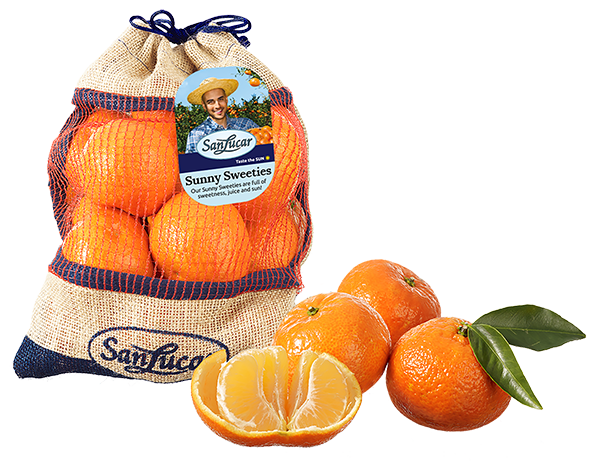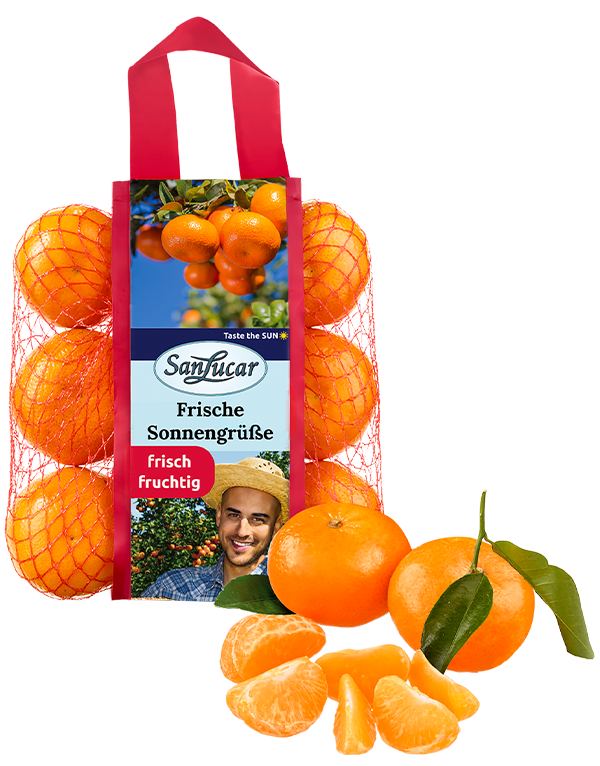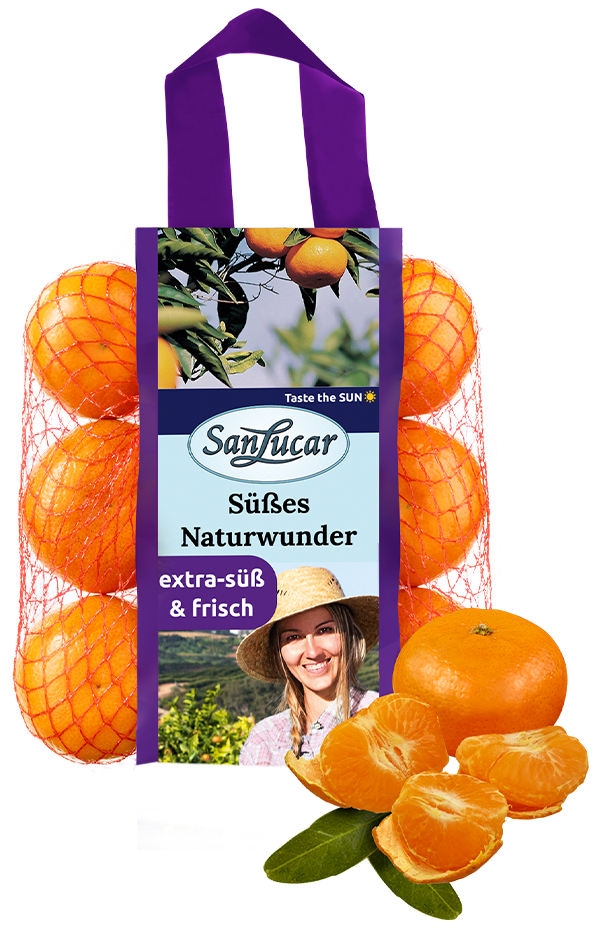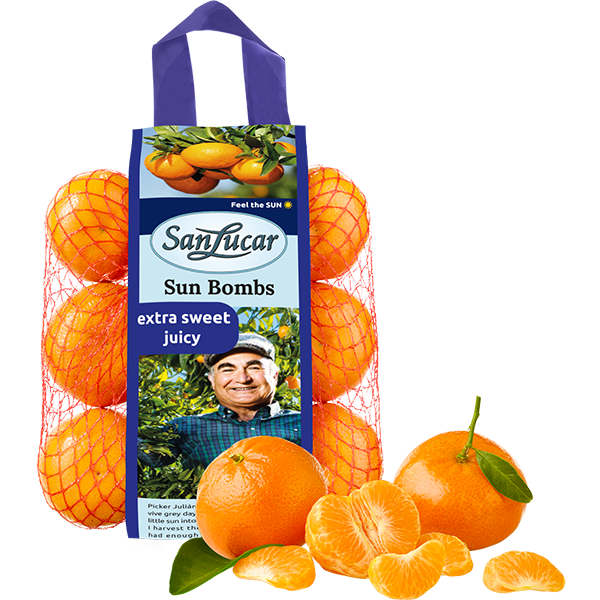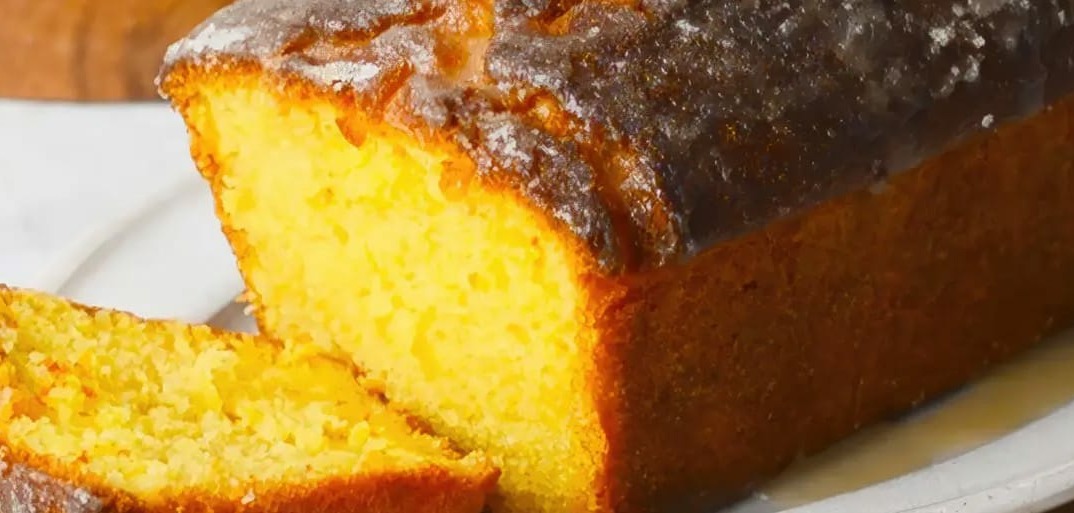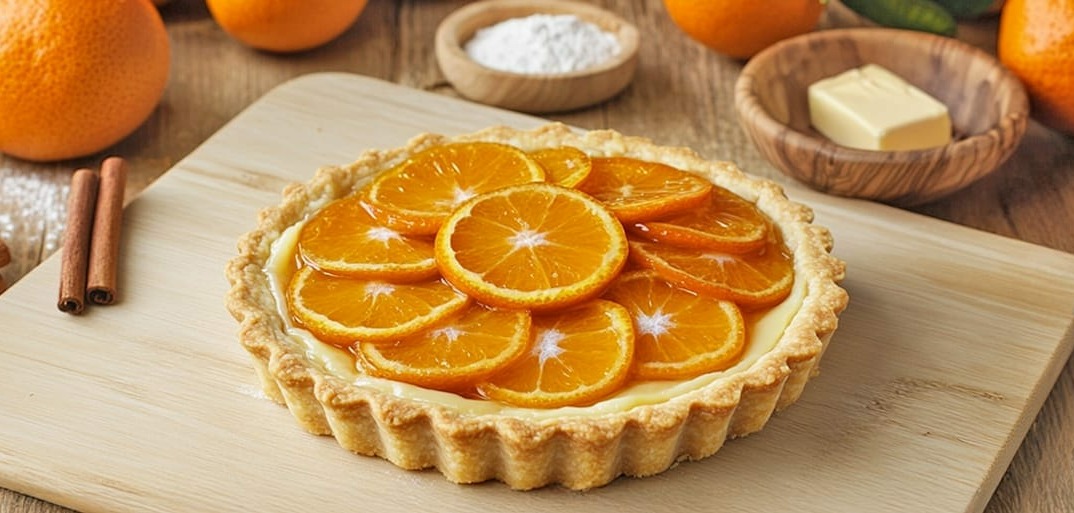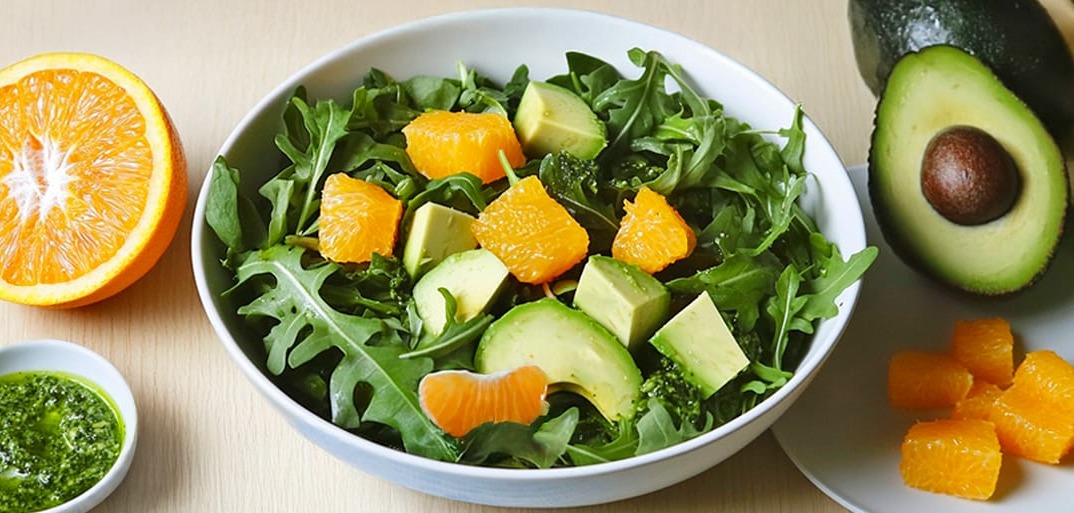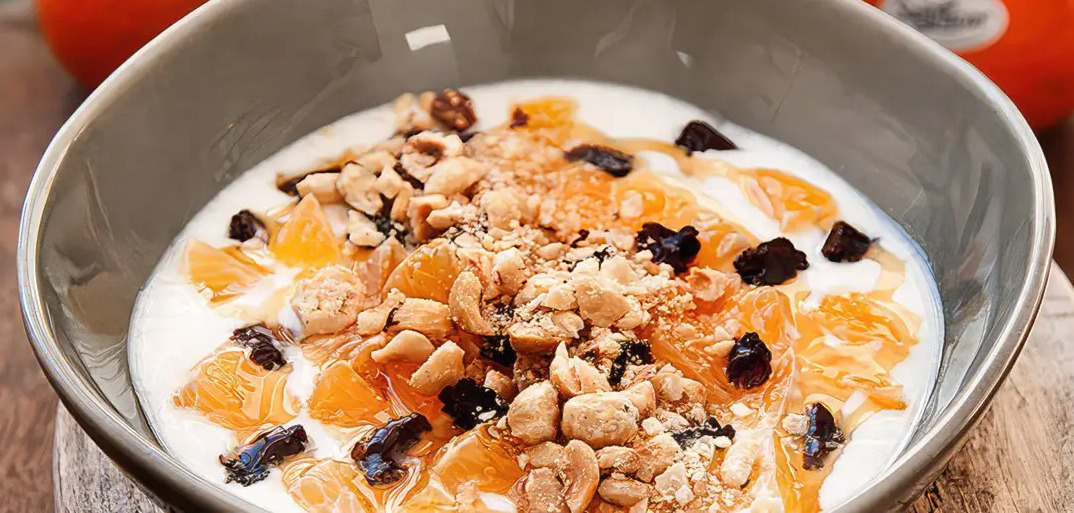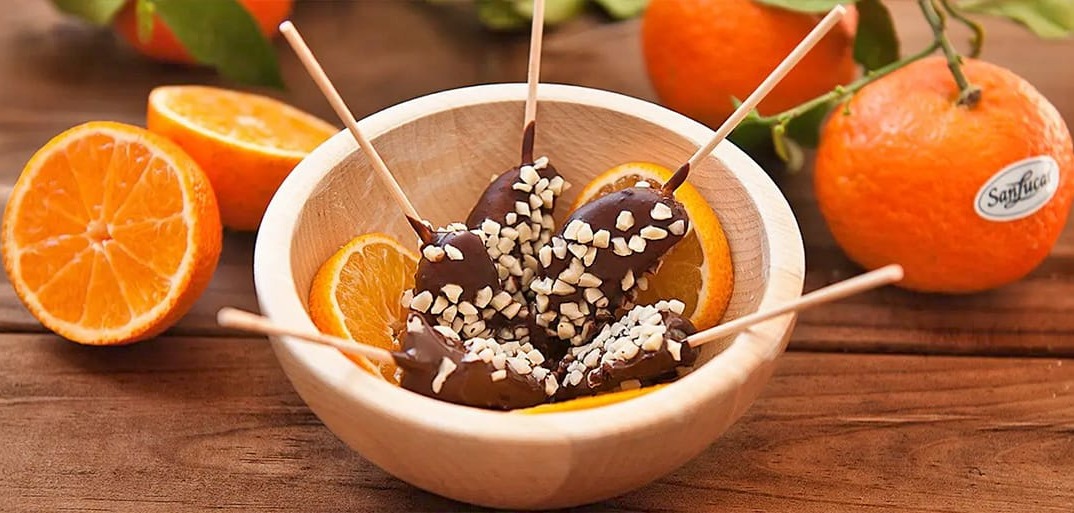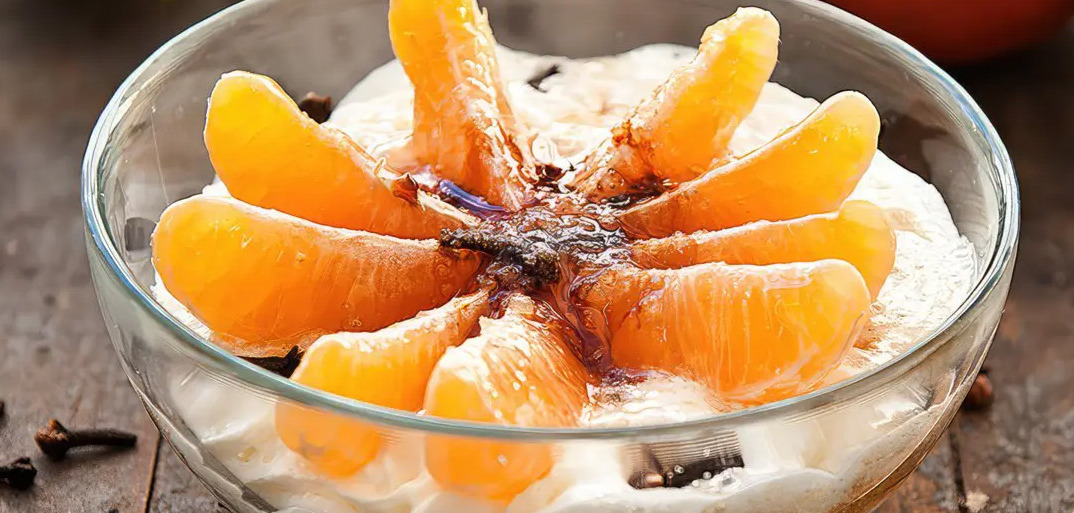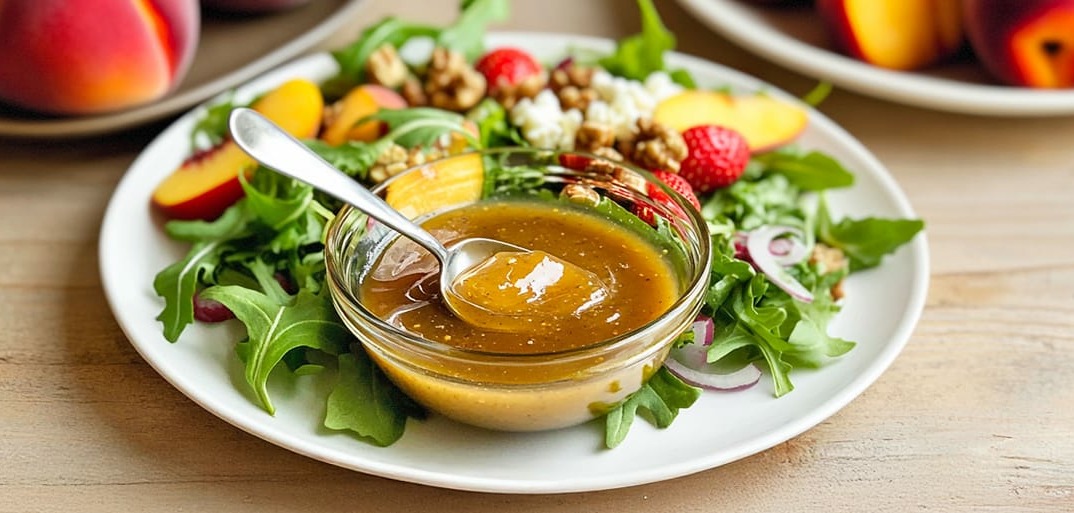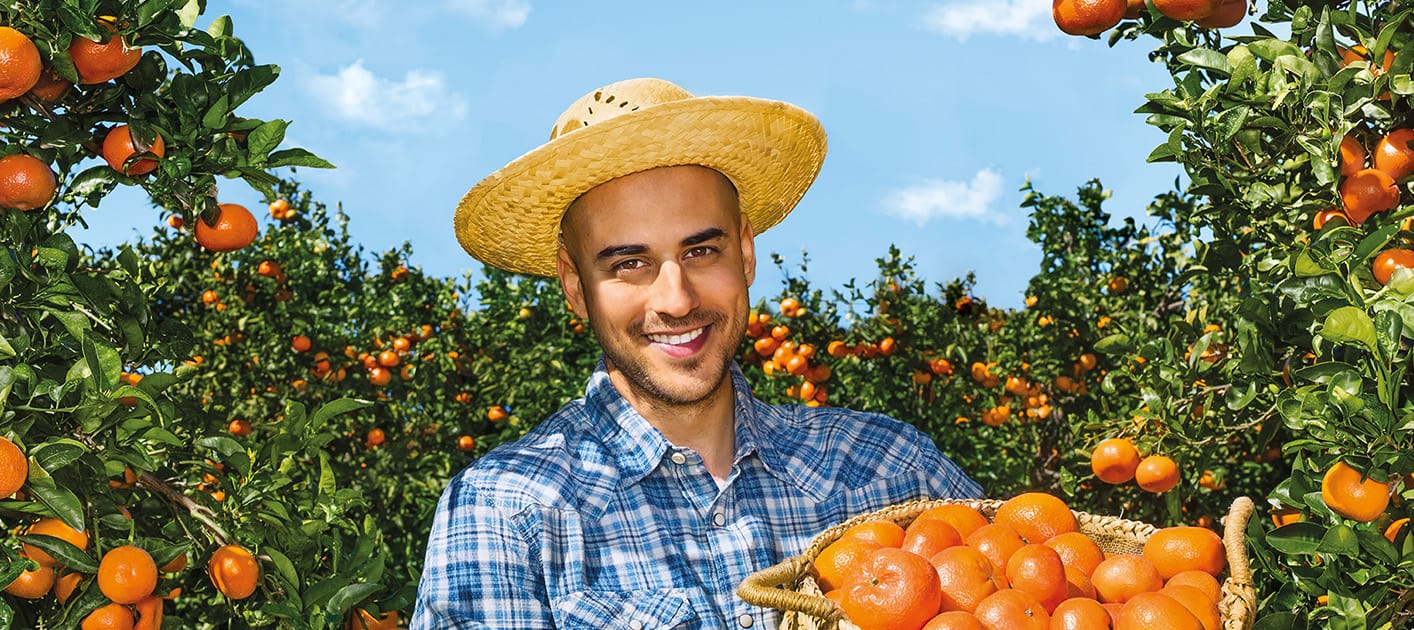
Sweet treats from the sun.
If a tangerine tastes really delicious, it must be one of ours. We offer different varieties with different flavours, so there is something for everyone. “Freshly fruity”, “extra-sweet and fresh” and “aromatic-delicate” – which is your favourite tangerine?
We grow our tangerines in the best regions, where they are lovingly cared for by our Master Growers.
It starts with professional pruning so that the tree grows vigorously and later bears many fruits. With digital water management, the tree gets exactly as much water as it needs to develop juicy fruits. But not a drop more, because we want to use water sparingly.
When the fruits turn orange after many hours of sunshine, we test their sugar content. If it is optimal, we begin harvesting. After that, our sun-kissed fruits are checked up to four more times, and only the best are selected for you.
Mandarins are not just a sweet and sunny treat for the winter months. They are refreshing in summer too, if you keep them cool. And if you squeeze them, you have a juice that tastes delicious on its own, in cocktails or mixed with other fruit juices.

Good to know
If you want to store mandarins for longer, you should put them in the fridge. This will keep them fresh and flavourful for longer.
More interesting factsabout mandarins
Country of origin
Our mandarins ripen in the best growing areas of the world and, during the winter months, come mainly from Spain and Morocco. In the high and late summer months, they also come for example from South Africa, Peru, Chile and Australia.
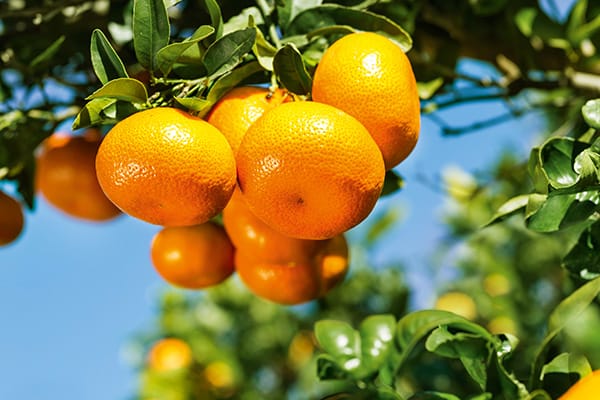
Storage
Mandarines should be stored in the refrigerator, as they lose their flavor after a few days at room temperature.
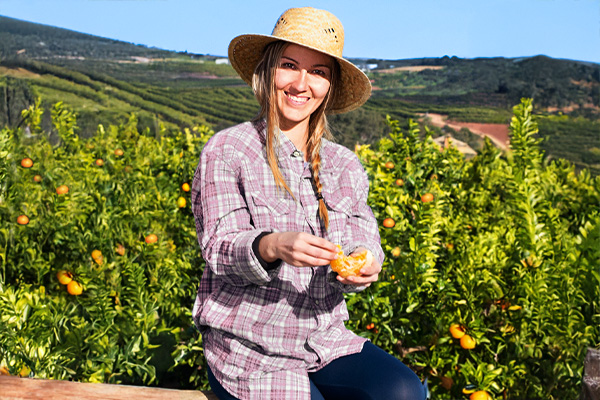
Tips and special features
In winter they are a fruity-sweet treat and in summer well cooled a delicious refreshment. By the way, they also taste delicious as freshly squeezed mandarin juice – simply enjoy them pure or as a mix with other fruit juices and cocktails.
Nutritional information
| Vitamin B (mg/100g) | 0.8 mg |
| Vitamin C (mg/100 g) | 10 mg |
| Vitamin E (mg/100 g) | 0.6 mg |
| Potassium (mg/100 g) | 150 mg |
| Calcium (mg/100 g) | 33 mg |
| Magnesium (mg/100g) | 11 mg |
| Calorific values: Energy | 50 kcal |
| Fett thereof |
0.3 g |
| Saturated fatty acids | 0.1 g |
| Monounsaturated fatty acids | |
| Polyunsaturated fatty acids | |
| Carbonhydrates | 10.1 g |
| of which sugar | 10.1 g |
| Protein | 7 g |
| Salt | 3 g |
| © German Food Code 3.02 |
History
Originating, like their sisters, the oranges, from the southwest of China, the mandarins have been known for 4000 years. While oranges arrived in the Mediterranean as early as the 15th century with the discovery of the sea route by the Portuguese, it was not until the British provided mandarins to Europe in the early 19th century
Taste in harmony with people and nature
We use our modern, digitally controlled water management system to save water, always rely on natural predators first when dealing with pests and protect the bees.
More about our social responsibility
